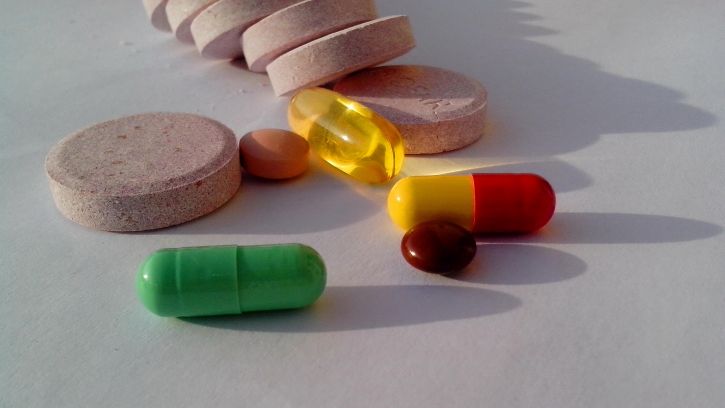
The Risk of Impacting Weight Loss with Probiotics
If you are in the habit of glancing through health sites every now and then, chances are you have already come across the term probiotics by now. Maybe you are already taking them, in fact. Perhaps, you just want your digestive system to be healthy, functioning at peak performance, or you are keen to lose weight and someone has suggested that probiotics can help.
Probiotics do have a host of health benefits to offer, and they have weight loss benefits as well. But if you are taking them just on basis of what you have heard, without quite knowing what they are or what they do, it might not quite be the right thing to do. Do you know that you have different variants in probiotics? Do you know that taking just any one of them without knowing if that’s the one you need may not help you at all and may actually have some adverse side effects? Do you know that not taking probiotics in the right way can sabotage your weight loss program and actually make you add a few inches to your waist? It’s likely that none of these are outcomes you prefer, which is why it is important for you to know exactly what you are taking, be it probiotics or any other food stuff or supplement that you believe will help you in some way. Let’s start from the basics.
Role of Probiotics in Our Body
Did you know that probiotics are live bacteria? But aren’t bacteria bad for you? Don’t they cause all kinds of illnesses? Well, no. Our body has a host of GOOD bacteria as well, and they all perform essential tasks that keep the body and systems functioning the way it should. When you take probiotics in the form of food or supplements, what you are doing is repopulating your body’s stash of the friendly, necessary bacteria that may have been depleted in some manner.
To give you a small sample of why these bacteria are good, they have these key benefits:
- Help maintain good digestion
- Keep your heart healthy
- Make you resistant to ailments
- Ensure your weight stays within reason
- Assist in production of necessary vitamins (vitamins K and B for example)
- Break down fiber in the food and turn it into usable fatty acids
While probiotics are commonly used to improve your digestion and overall health, you may also be using them to restore your gut flora after a long coruse of antibiotics. If you have just recovered from a long illness that has thrown your gut flora off the game, you may be on probiotics to restore the balance. Probiotics help by keeping your gut healthy so that harmful microorganisms cannot flourish in there, impairing your overall health.

Bacteria and the Weight Loss Connection
Good bacteria are critical for good gut health, which is essential because, if the gut is not working as it should, your digestive system is shot. When this happens, you are at risk of putting on weight, among other things. Remember that if your digestion is off sync, then you are not getting the optimum nutrition from the foods you eat. You may be eating the most nourishing diet, but your body simply does not absorb all of the goodness the food has to offer simply because the digestive system is not working efficiently enough. When there are not enough good bacteria in the gut, you have a dysbiosis – that is, a skew in the gut bacteria. With inadequate gut bacteria, your body has no means to keep bad bacteria in check efficiently. Gut imbalances add to your risk of obesity, as studies show. It has also been found that obese people exhibit very different gut flora when compared with people of normal weight. It would be logical to conclude that gut flora does influence how obese you may get.
Probiotics also appear to increase the dietary fat released by the body. When you consume excess fat, probiotics may ensure that it is flushed out of the system and it does not accumulate within the body itself. Obviously, this helps with your weight control measures in an effective manner.
Studies also show that probiotics help in making our body react in a specific way to the hormone leptin by making you feel satiated quickly and for longer than normal. Leptin is released by fat cells as an indicator to your brain that adequate fat has been stored. This curbs the urge to eat and thus makes it easier for you to avoid snacking in between meals and also to keep meal portions down to reasonable levels.
Importance of Taking Probiotics the Right Way
If you are taking your probiotics for weight loss, you should ensure that you are doing it the right way to ensure that you get the maximum possible benefits from it. After all, you do not want to go to the trouble of taking probiotics without getting the optimum result, would you? There are many things to keep in mind when you are opting for, and taking these gut friendly microorganisms can ensure that you achieve the results you seek, namely weight loss. Take a look at the most critical things to factor in:
Ease Your Body Into It
If taking probiotics is giving you a tummy ache or bloating or making you gassy, you may stop it immediately assuming that it doesn’t agree with you. The thing is that your body needs time to get accustomed to probiotics. If you suddenly introduce a high CFU probiotic into your system, you upset the delicate balance rather badly, and the result can manifest in a myriad ways. Understand that it may be necessary to slowly introduce your body to probiotics and gradually increase the degree to which your system is exposed to these bacteria. Too much of a good thing can be bad too, and that holds good with probiotics too.
Timing It Right
Most of us don’t view probiotics with the same care as we do our common medications. While you may check and make doubly sure that you are taking your medication in the exact way as prescribed by your doctor, at the right time, you may just pop your probiotics whenever you remember or whenever it is convenient. While some probiotics will work just as effectively no matter how and when you ingest them, this is unfortunately not true of all. For example, the lactobacillus bacteria thrive when you take it about half an hour before your meal. Take it after the meal and you reduce its efficacy quite drastically. Another aspect is the consistency. These work best when you are taking them on a regular basis and not on a sporadic kind of scheduling. In short, you may be losing out on the goodness of the probiotic if you do not have a fixed schedule for taking it that is based on an expert opinion.
The Right Combination
Probiotics are just live bacteria, and as is the case with bacteria, when you mix up two or three different probiotics, you may end up negating the effects of one or all. Knowing which ones to take and when to take them is important if you want to derive the full benefit of the probiotics you are opting for. Some of them also react with other medications or supplements that you may be taking. Check with your healthcare provider and verify that you can take your probiotic along with any other medications that you may be on. Remember that, in some cases, probiotics may make other medications more effective, so a lowering of the dosage of those medications may be in order, under your physician’s guidance.
Talk about combos and it is also important to note that it may help to take the probiotic with specific kinds of food. This is not the case for all probiotics, but you should know if the one you are taking requires this kind of care. If it does, then do some research on what foods it goes well with. For example, lactobacillus works best when you are going to follow it up with foods that can release glucose. That makes sugary stuff and carb-rich foods a good thing to have if you are taking this probiotic.
Knowing Which Ones to Take
There are many kinds of bacteria in our bodies, all doing different tasks, helping in different ways. In fact, our body has more than 500 strains of bacteria, some working on the digestive aspect, some on immunity, some on your heart. For example, lactobacillus acidophilus helps with digestion whereas lactobacillus rhamnosus works on your blood glucose. If you take the latter and expect your digestion to improve, you are not going to see the results you desire, but the probiotic will be working on something within your body that perhaps does not need work at all.
Taking the right kind of bacteria can have beneficial effects. But taking the wrong kind, the kind you do not need, can have ill-effects too, just as easily. Studies have shown that certain probiotic strains actually heighten your risk of weight gain. For instance, the lactobacillus acidophilus has a predilection to promote weight gain, instead of helping with weight loss. Unless you are aware of what you are taking and what it does, you could end up ingesting a probiotic that is counterproductive given what you are trying to achieve.

The Right Dose
Taking too little of a probiotic may leave you with little or no benefits at all. The dose of the probiotic matters, a lot. For example, if you are trying to use probiotics to cure gastrointestinal ailments, then you may need a dose of at least five billion CFUs (colony forming units). As per research, at least 100 million of the microorganisms must reach your gut for the bacteria to begin colonizing and showing the positive result. According to the AAFP, the ideal dosage varies depending on the product, but in general, an adult would need between ten and twenty billion CFU dosages a day, while children require between five and ten billion CFU dosages daily. A very key point that is often overlooked is that bigger is not better when it comes to probiotic dosages. Your goal is to balance your gut bacteria, so if you overdo the dosage, all you will end up doing is tip the scales in the other direction, and that too drastically. Massive dosages are only to be taken under advice of your physician who may suggest them if you have a severe case of gastrointestinal ailments.
Also keep in mind that the shelf life of probiotics is limited. You cannot keep one indefinitely and assume that it will retain its efficacy across times. If you are using a supplement, make sure you check the dates and also follow instructions about its storage diligently.
Exposure Issues
Leaving your probiotic open to air may be the worst thing you can do. Whether you take the probiotic in the form of food or supplements, this is a bad idea. If it is supplements that you go for, you have to be careful about not leaving it open. While you may not remove a capsule and leave it out, you may be in the habit of putting the supplements in a pill box to help keep medication organized or to help you remember to take them every day. This could be detrimental as well. Probiotics do expire faster when you expose them to air, light, heat, and humidity, so leaving them in the box they come in may be the best way to lock in their goodness. This is also why storing your probiotic supplements in your bathroom’s medicine cabinet is not a good idea at all. Remember, these are live bacteria, and they need a conducive environment to thrive. If they die out, you get zero benefit from taking the probiotic.
Following a One Size Fits All Regimen
A most common mistake that is made with probiotics is that you use the kind and the dosage that your sibling or parent or colleague recommends because they are using the same. Well, as with anything that can affect the internal workings of your body, you need to remember that there is a delicate balance going there inside of you. Every single person’s physiology is different and unique, and that is why it is dangerous for you to opt for even a diet that works for someone without carefully analyzing if it will suit you. In such case, is there even a need to stress on the importance of checking if a probiotic suits your specific body?
Your microbiome, that is, the collection of all the bacteria in your body, is unique and may be quite different from anyone else’s. Within this system, the bacteria coexist and have an understanding going that can be completely ruined if you suddenly introduce new microorganisms that your body just doesn’t know how to deploy. If you are taking the wrong kind or the wrong dosage and you get lucky, the probiotic may just pass from end to end without causing harm, but then what is point of this at all? Also, there is a risk that you don’t get so lucky, and the unnecessary microorganisms you have forced into your system actually cause harm.
Perhaps one of the biggest challenges with using probiotics and deriving benefits from them is that the lack of standardization and regulation in this niche. These are not regulated by FDA, and you can get a host or probiotic products off the shelf at your neighborhood store. Many foodstuffs are advertised as being infused with probiotics, and these enjoy great demand since the probiotics craze has caught on well globally. But when you buy a supplement off the shelf of your supermarket or a food stuff that has probiotics on it, you may hardly pay attention to exactly what kind of bacteria it contains and how much of it.
In many of these, you may not even be able to find the details if you search for them because there are no norms governing these aspects. As a result, you often have no idea what you are actually buying and ingesting. And as you have already seen, taking the wrong kind of probiotic or in the wrong dosage or wrong time could be rather detrimental to your health, at worst, or at the very least, give you no benefits at all. Clearly it is essential for you to not just understand how probiotics work, but also why you need them and which kind you should be choosing. Next, you also need to identify a good quality probiotic, and then check how it is to be used and follow those instructions diligently so that you can avoid the adverse effects and hopefully enjoy the benefits in line with your expectations.



